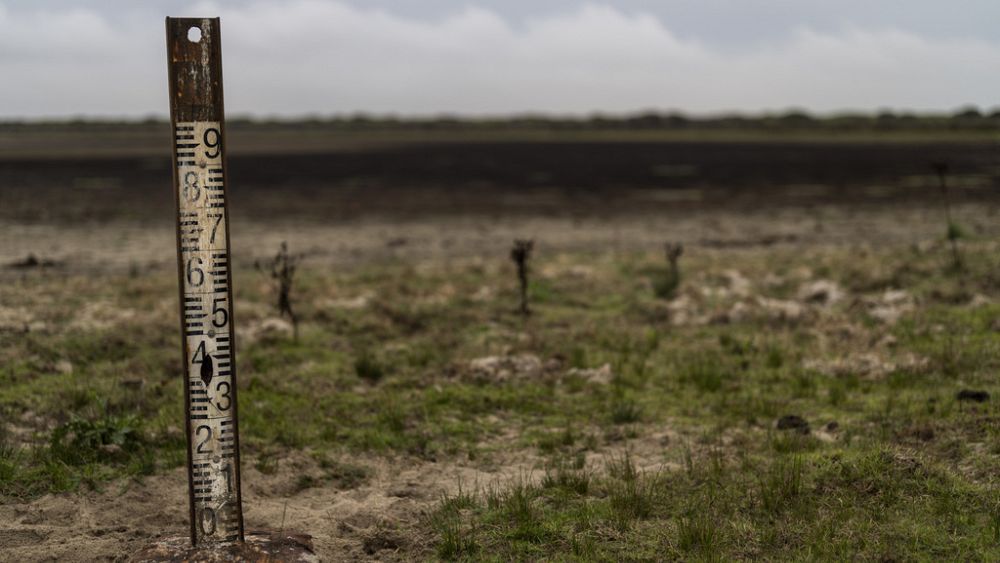Are the marshes of Doñana National Park doomed to disappear? To preserve the water table, Spain is buying back hectares of crops from farmers.
Autumn rains green the Doñana National Park in southern Spain.
In reality, the wet landscape is deceptive.
The marshes of this park south of Seville are almost dry: 98% of its water has disappeared.
The lack of precipitation and the overexploitation of groundwater are at the origin of the disappearance of marshes.
The level of tributary watercourses is depleting and the marsh area is no longer sufficiently nourished.
The phenomenon induces a chain reaction: migratory birds are half as numerous as usual.
Felipe Fuentelsaz, WWF Doñana: “We’re taking a lot more water than we actually have.”
Growing strawberries, raspberries, blackberries and other berries requires water.
Some farmers in the region get their supplies directly from groundwater.
Many of the wells are illegal.
Doñana National Park is on the verge of collapse and Unesco is considering removing it from the UN agency’s list of World Heritage Sites.
Jaime Velázquez, Euronews: “The new plan to save the national park plans to replace some of these greenhouses with rain-fed crops or return the land to its original state.”
Spain plans to invest 1.4 billion euros to save the area: for each hectare of cultivation abandoned, farmers will receive compensation of 100,000 euros.
For farmers, only protecting the water table could save the marshes.
Pedro Báñez, secretary of the County Irrigation Community: “There is an approved transfer from the neighboring basin of the Tinto, Odiel and Piedra rivers of 20 hectometers… If this transfer could be fully realized, it would reduce the water withdrawals by half. the aquifer.”
Climate change may be the final nail in the national park’s coffin.
Felipe Fuentelsaz, WWF Doñana: “The only way to adapt is to eliminate the illegal use of water and regain this dynamic of rivers and r
The future of Doñana is also being decided at the COP28 in Dubai.
Only a reduction in greenhouse gases could save Doñana National Park, say environmentalists
***
Autumn rains green the Doñana National Park in southern Spain.
In reality, the wet landscape is deceptive.
The marshes of this park south of Seville are almost dry: 98% of its water has disappeared.
The lack of precipitation and the overexploitation of groundwater are at the origin of the disappearance of marshes.
The level of tributary watercourses is depleting and the marsh area is no longer sufficiently nourished.
The phenomenon induces a chain reaction: migratory birds are half as numerous as usual.
Felipe Fuentelsaz, WWF Doñana: “We take a lot more water than we actually have.”
Growing strawberries, raspberries, blackberries and other berries requires water.
Some farmers in the region get their supplies directly from groundwater.
Many of the wells are illegal.
Doñana National Park is on the verge of collapse and Unesco is considering removing it from the UN agency’s list of World Heritage Sites.
Jaime Velázquez, Euronews: “The new plan to save the national park plans to replace some of these greenhouses with rain-fed crops or return the land to its original state.”
Spain plans to invest 1.4 billion euros to save the area: for each hectare of cultivation abandoned, farmers will receive compensation of 100,000 euros.
For farmers, only protecting the water table could save the marshes.
Pedro Báñez, secretary of the County Irrigation Community
There is an approved transfer from the neighboring basin of the Tinto, Odiel and Piedra rivers of 20 hectometers… If this transfer could be fully realized, it would reduce withdrawals from the aquifer by half.
Climate change may be the final nail in the national park’s coffin.
The future of Doñana is also being decided at the COP28 in Dubai.
In the eyes of environmental defenders, only a reduction in greenhouse gases could save Doñana National Park.


